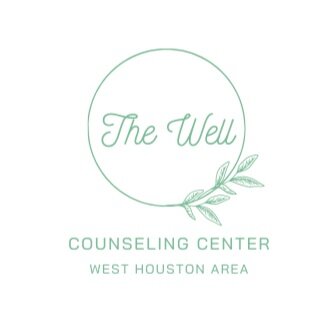The Truth About Trauma
It's Not Just You (And Yes, Healing is Possible)
From Surviving to Thriving: Why Your Past Doesn't Have to Define Your Tomorrow
Have you ever wondered if those difficult experiences from your past are "bad enough" to be considered trauma? Or if therapy can actually help you move forward? You're not alone in these questions, and the answer might surprise you.
What Actually Counts as Trauma?
Trauma isn't just about the big, obvious events that make the news. It can be as varied as:
A one-time event (like an accident or assault)
Ongoing situations (such as childhood neglect or toxic relationships)
Witnessing something distressing
Living through a pandemic
Experiencing discrimination
Losing a loved one
Growing up with family instability
Here's the truth: If an experience has left a lasting impact on how you feel, think, or behave, it could be trauma – and your feelings are valid.
The Universal Nature of Trauma
According to the National Council for Mental Wellbeing, 70% of adults in the U.S. have experienced some type of traumatic event. That's about 223.4 million people. Trauma doesn't discriminate – it affects people of all backgrounds, education levels, and income brackets.
Signs You Might Be Dealing with Trauma
Feeling constantly on edge
Difficulty trusting others
Unexplained anxiety or depression
Trouble sleeping or nightmares
Avoiding certain places or situations
Relationship difficulties
Unexpected emotional reactions
Physical symptoms like headaches or stomach problems
The Science Behind Trauma Therapy
Research shows that trauma-informed therapy works. A comprehensive study published in the Journal of Clinical Psychology found that 88% of people who received trauma-focused therapy showed significant improvement in their symptoms. But what makes therapy so effective?
How Therapy Helps with Trauma
1. Safe Space for Processing
At The Well Counseling Katy, you'll find a judgment-free environment where you can unpack your experiences at your own pace. Our trained therapists understand that healing isn't linear
2. Evidence-Based Approaches we use proven therapeutic methods like:
EMDR (Eye Movement Desensitization and Reprocessing)
Cognitive Behavioral Therapy (CBT)
Sand Tray Therapy
Trauma Informed Therapy
3. Practical Coping Strategies
Learn real-world techniques to manage trauma responses and regain control of your life
Success Stories and Statistics
67% of people who complete trauma therapy report improved relationships
70% experience better sleep quality
80% report reduced anxiety symptoms
75% say they feel more in control of their lives
Breaking the Stigma
The silence around trauma can be deafening. Many people carry their experiences quietly, believing they should "just get over it" or that their struggles aren't valid enough to seek help. This silence doesn't just affect individuals – it perpetuates a cycle of trauma that can span generations. Breaking the stigma around trauma and therapy is crucial for both personal and collective healing. When we acknowledge our experiences and seek help, we don't just heal ourselves – we help break the cycle of intergenerational trauma. By taking steps to address our own trauma, we create ripple effects that positively impact our relationships, our families, and our communities. Remember, seeking help isn't a sign of weakness or failure. It's an act of courage that says, "I deserve better, and so do the people I care about." Every person who speaks openly about their healing journey helps create a world where others feel safe to do the same.
Ready to Start Your Healing Journey?
Taking the first step is often the hardest part, but you don't have to walk this path alone. The Well Counseling Katy is here to support you with:
Compassionate, experienced therapists
A warm, welcoming environment
Evidence-based treatment approaches
To begin your journey toward healing, you can book an appointment at The Well Counseling Katy. Remember: Your past experiences may have shaped you, but they don't have to define your future. Healing is possible, and it starts with one brave step forward.
Final Thoughts
Trauma may be common, but that doesn't mean you have to live with its effects forever. With the right support and guidance, you can process your experiences, develop healthy coping mechanisms, and move forward into a life that feels more peaceful and purposeful. You deserve to heal. You deserve support. And most importantly, you deserve to know that hope and healing are possible, no matter what you've been through.


